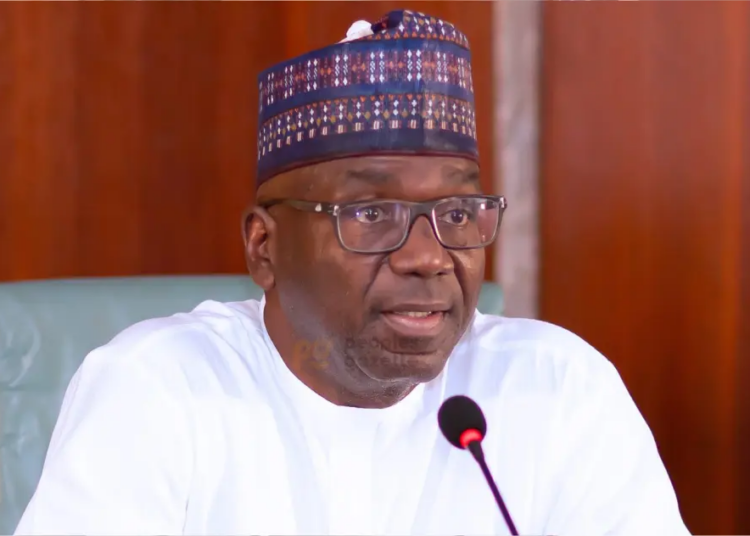A total of 23 serving governors across 18 states dumped the political parties on whose platforms they were elected for other parties since Nigeria’s return of democratic rule in 1999.
Sokoto, Imo, and Abia states have recorded more defections by incumbent governors in the last 24 years, findings by LEADERSHIP reveal.
While Sokoto has had three of its serving governors jumping ship, Abia and Imo states have recorded two of such incidents.
Findings reveal that while 13 of these defecting governors are from the north, 10 are from the southern part of the country. Also the highest number of serving governors who dumped their parties happened under the President Muhammadu Buhari administration.
The defections happened within 10 political parties, some of which no longer exist due to merger or deregistration.
The parties are All Peoples Grand Alliance (APGA), Alliance for Democracy (AD), All Nigeria Peoples Party (ANPP), Progressives Peoples Alliance (PPA), All Progressives Congress (APC)
Others are Peoples Democratic Party (PDP), Democratic People’s Party (DPP), Action Congress (AC), Labour Party (LP) and Zenith Labour Party (ZLP).
LEADERSHIP reports that there are four ways through which a serving governor can be removed from office as provided for in the 1999 Constitution (as amended). They are death, resignation, incapacitation and impeachment. Defection is not one of them.
However, while seven defections happened between 2007 and 2015, five governors defected between 1999 and 2007.
Also, the North West zone has the highest number of defections. In this zone eight incumbent governors dumped their parties for others, in Sokoto, Zamfara, Kano, Kebbi and Jigawa states.
The South East takes second place as five governors from Abia, Imo, and Ebonyi defected from their parties while in office.
In the North East, three cases of defection were recorded in Bauchi and Adamawa states. In the South-South states of Rivers, Cross River and Edo, three defections have happened since 1999.
There were two cases of defections in North-central region (Benue and Kwara states). Like North Central, only two defections happened in South West zone (Lagos and Ondo states).
Kaduna and Katsina are the only states in the North West whose governors remained in the parties they were first elected till the expiration of their tenure in the last 22 years.
Overall, Sokoto State tops the chart of serving governors who defected to other parties. The three governors of the state from 1999 to 2023, Attahiru Bafarawa, Aliyu Wamakko and Aminu Tambuwal, all jumped ship.
While Bafarawa left ANPP for DPP; his successor, Wamakko dumped PDP for APC and Tambuwal left APC for the PDP.
Abia, Adamawa, Imo, Zamfara states have had two cases of defections each. In Abia, Orji Kalu dumped PDP for PPA, while his successor, Theodore Orji. left PPA for PDP.
For Adamawa, Boni Haruna moved from PDP to AC, while Murtala Nyako left PDP for APC.
In Imo, Ikedi Ohakim defected from PPA to PDP, while Rochas Okorocha left APGA for APC.
In Zamfara, Mahmuda Shinkafi moved from ANPP to PDP, while Matawalle left PDP for APC.
Interestingly, then Kwara State Governor Abdulfatah Ahmed defected twice while in office. He first dumped PDP for APC in 2013, and returned to PDP in July 2018.
In the North East, there were no defections in Borno, Yobe, Gombe and Taraba states. No governor in Plateau, Nasarawa, Niger and Kogi states defected in the North Central.
In the South West, there was no switching of political parties by governors in Oyo, Ekiti, Ogun and Osun states. Also, Bayelsa, Akwa Ibom and Delta states did not experience any defection during the period under review. It was the same for the South East states of Anambra and Enugu.
Prominent lawyers, yesterday, frowned at the culture of defections by political office holders.
The lawyers said it is immoral to get elected into office based on votes secured from a party and later dump the party for another for selfish political reasons.
A Senior Advocate of Nigeria, Mr Abdul Balogun, said politicians in the country have taken Nigerians for a ride for too long.
“Unfortunately, politicians will always find a way to escape the consequences of their actions”, he said.
According to him, currently, the 1999 Constitution only frowns at the defection of lawmakers at the state House of Assembly and the National Assembly.
He said: “In specific terms, Section 68 (1) of the constitution states, ‘A member of the Senate or of the House of Representatives shall vacate his seat in the House of which he is a member, if being a person whose election to the House was sponsored by a political party, he becomes a member of another political party before the expiration of the period for which that House was elected’.
“But what do we have today; lawmakers cross-carpet at will without consequences. Sometimes, some of these laws are just there without implementation. Again, sometimes, when some of these cases go to court, it is frustrated. We need a strong will to ensure these laws are carried out to the letter which will serve as a lesson to politicians.”
On his part, Barrister Joel Amanda said the law is silent on the defection of governors.
“At least from my knowledge of happenings in the country as regards defections, no governor has lost his seat for defecting from one political party to another.
“This is not good for the image of the country and our electoral processes. From 1999 till date, I’m not aware that any governor has been sacked or removed from office as a result of defection”, he said.
A Lagos-based lawyer, Barrister Saudi Hammed, said defection represents a lack of adherence to political ideals and values.
He said politicians are not just elected to political office on account of their individual capability and personal recognition, but also on the strength and visibility of their political parties as vehicles of political contestation.
“The world over, political parties in a democracy are distinguished and identified by their ideologies and guiding philosophies. Sadly, these are lacking in Nigeria in the current political dispensation. Instead, the major attraction to politics has been the huge perks and patronage in public office. When these are not forthcoming, defection becomes the next option,” he said.
We’ve got the edge. Get real-time reports, breaking scoops, and exclusive angles delivered straight to your phone. Don’t settle for stale news. Join LEADERSHIP NEWS on WhatsApp for 24/7 updates →
Join Our WhatsApp Channel











